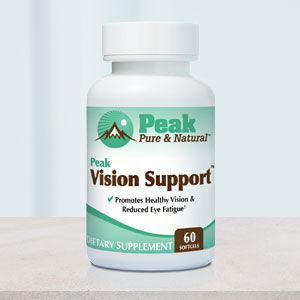Get Easy Health Digest™ in your inbox and don’t miss a thing when you subscribe today. Plus, get the free bonus report, Mother Nature’s Tips, Tricks and Remedies for Cholesterol, Blood Pressure & Blood Sugar as my way of saying welcome to the community!
The double danger moms face from ultra-processed foods

Ultra-processed foods are made mostly from substances extracted from foods such as oils, sugar and starch, with plenty of chemicals and preservative thrown in to enhance their appearance and lengthen their shelf life.
Once they’ve undergone processing, they bear little resemblance to their original form. Some ultra-processed foods include soft drinks, pastries, packaged meals, fast foods and snacks like chips and cookies.
These foods are unhealthy as a rule. But what really makes them dangerous are chemicals known as phthalates.
They seep into these foods from the wrapping and packaging and end up in the bloodstream where they can drive heart disease, bring on early menopause, lower thyroid and testosterone levels and raise risk for type 2 diabetes.
But there’s one group of people for whom phthalates carry double the danger…
Eating for two means sharing the danger
When a pregnant woman consumes foods containing phthalates, not only does the chemical end up in their bloodstream — it makes its way through the placenta and into the fetal bloodstream.
In other words, not only is mom-to-be now at risk — so is her unborn child.
Those were the findings when researchers analyzed data from the Conditions Affecting Neurocognitive Development and Learning in Early Childhood (CANDLE) research cohort, made up of 1,031 socioeconomically diverse pregnant individuals in Memphis, Tenn., enrolled between 2006 and 2011. Phthalate levels were measured in urine samples collected during the second trimester of pregnancy.
Once in the fetal bloodstream, phthalates can cause oxidative stress and an inflammatory cascade within the fetus. Previous research has indicated that phthalate exposure during pregnancy can increase the risk of low birth weight, preterm birth, asthma and disorders such as autism and ADHD.
On average, 38.6 percent of the women’s diets were composed of ultra-processed foods. That’s more than a third. Any additional 10 percent increment was associated with a 13 percent higher concentration of di(2-ethylhexyl) phthalate, one of the most common and harmful phthalates.
By contrast, diets high in vegetables, fruits, yogurt, fish and nuts were linked with lower urinary concentrations of this and other phthalates.
Some women in the study may have been more vulnerable to ultra-processed foods due to financial hardships and living in “food deserts” where access to healthier, fresh foods is difficult.
According to the researchers, regulation is needed to prevent phthalate contamination in foods.
“We don’t blame the pregnant person here,” says lead author Brennan Baker, a postdoctoral researcher at the University of Washington School of Medicine. “We need to call out manufacturers and legislators to offer replacements, and ones that may not be even more harmful.”
How to best dodge phthalates
Is there any way for pregnant women to minimize their consumption of phthalates?
According to senior author Dr. Sheela Sathyanarayana, a UW Medicine pediatrician and researcher at the Seattle Children’s Research Institute, pregnant women should try to avoid ultra-processed food as much as they can, and seek out fruits, vegetables and lean meats instead.
But be wary of the packaging even these healthy foods come in, like plastic containers.
When you absolutely can’t avoid plastic packaging, take a look at the plastic number. Plastics numbered 3 and 7 are more likely to contain harmful chemicals like phthalates, whereas plastics 1, 2 and 5 are safer.
For people who aren’t pregnant, I’d suggest detoxing or chelation to help cut down on the chemical load. But during pregnancy that may not be a good idea.
However, adding healthy foods is. It turns out that certain healthy vegetables can bind to chemicals and help remove them from the body. Such foods include broccoli, Brussels sprouts, cabbage, cauliflower, arugula and dark leafy greens like kale.
Editor’s note: Did you know that when you take your body from acid to alkaline you can boost your energy, lose weight, soothe digestion, avoid illness and achieve wellness? Click here to discover The Alkaline Secret to Ultimate Vitality and revive your life today!
Sources:
Pregnant women should avoid ultra-processed, fast foods — EurekAlert!
Ultra-processed and fast food consumption, exposure to phthalates during pregnancy, and socioeconomic disparities in phthalate exposures — Environment International
Pregnancy nutrition: Foods to avoid during pregnancy — Mayo Clinic














